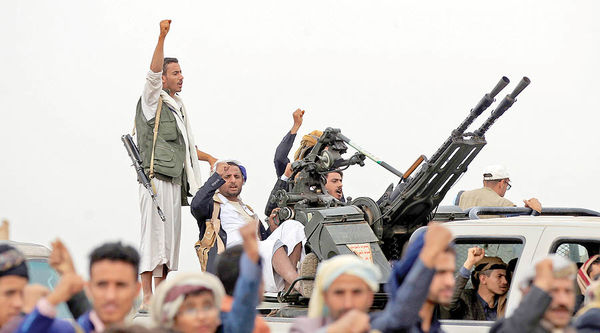With the start of the sixth year of a devastating and dreadful Saudi-led coalition war against Yemen, and while many countries have called for the end of this war as soon as possible, the Ansarullah movement and its popular armies have also put forth widespread efforts to end the war and force Saudi Arabia to follow suit.
While the issue of the Corona disease and its spread to the Arabian Peninsula has prompted some international organizations to stress the need for an immediate end to the war, However, it is in this situation that the Ansarullah movement has again launched a large-scale missile operation against Saudi Arabia, demonstrating its ability to hit the invaders by targeting Riyadh as well as some strategic points within Saudi Arabia and has thus called for the end of the Saudi military aggression campaign.
Through this extensive and significant missile operation, the Ansarullah movement has repeatedly warned the Riyadh authorities and Western supporters of the Saudi regime that the Yemeni people are capable of dealing crippling blows on the invaders and by inflicting heavy economic and military damage on them make them sorry for continuing the war on the threshold of its sixth anniversary.
Meantime, the political situation in Saudi Arabia continues to deteriorate due to the start of a series of political arrests and widening disputes between Saudi princes, and has reduced the Saudi regime’s ability to receive fresh military and missile strikes.
Furthermore, the unprecedented fall in oil prices has widened the scope of the economic crisis in Saudi Arabia and has put the Riyadh government on a downward spiral. However, as for the past five years, Saudi officials have shown no signs of changing their aggressive approach in Yemen, proving that the decision-makers for the start and end of the war in Yemen are outside of Saudi Arabia.
In fact, it is the Saudi army and the Riyadh regime that have acted as mercenaries and implemented the warmongering and devastating policies of the Western countries in Yemen. Otherwise, it was expected that following the open withdrawal of the UAE from the Saudi coalition and the recall of Sudanese troops participating in the war, Saudi officials would put an end to this costly war and would seek to resolve the problems inside Saudi Arabia, which are sinking them gradually into a swamp.
Meanwhile, Saudi leaders have not only ignored the warnings of various countries and international organizations but have also blatantly violated an agreement they signed in Stockholm to forge peace in Al-Hadida by the daily bombardment of the same port. Despite the catastrophic humanitarian situation in Yemen the Saudis continue to besiege the country with a population of nearly 30 million.
It is natural that in such circumstances, the Yemeni people and the Ansarullah movement must inevitably step in the direction of their defence policies and dismantle the Saudi regime’s war machine using its missile capabilities as well as its experience in land, air and sea operations.
In other words, in these circumstances, there are not many options for the Yemeni people to force the Saudi regime to stop the war, as experience has shown that any attempt to bring peace and ceasefire or to fruitful and productive talks will not produce effective results. And it will not force Riyadh officials to end their ruthless military aggression on residential areas of Yemen.
Based on what was said Ansarullah faces limitations in choosing the scenario to continue this path that is limited to the display of military power and its increase. Of course, the Yemeni people on different occasions have shown their ability to execute such a scenario well, and they are fully in line with Ansarullah, which is one of the important parameters in determining the outcome of this brutal war.










0 Comments